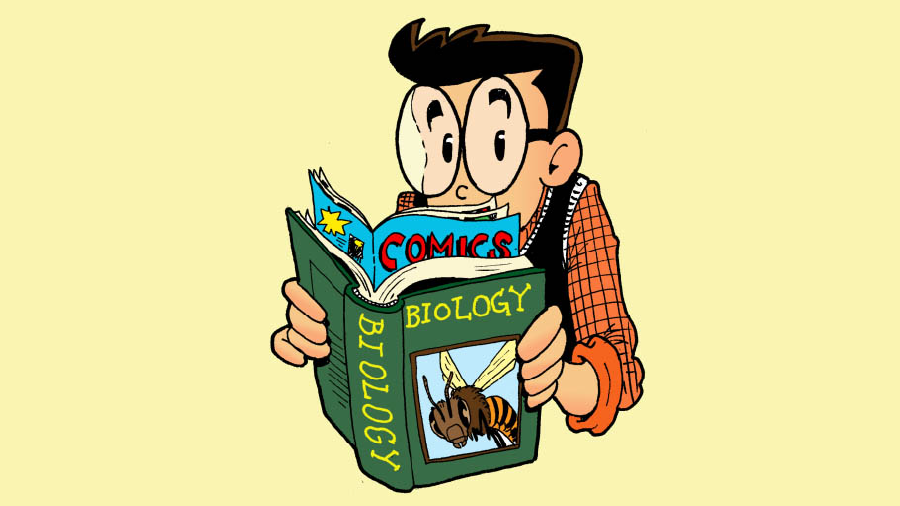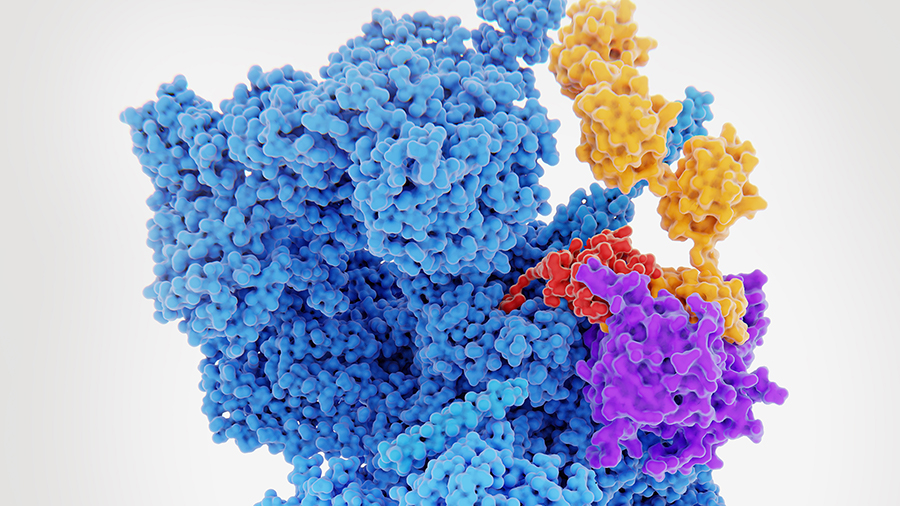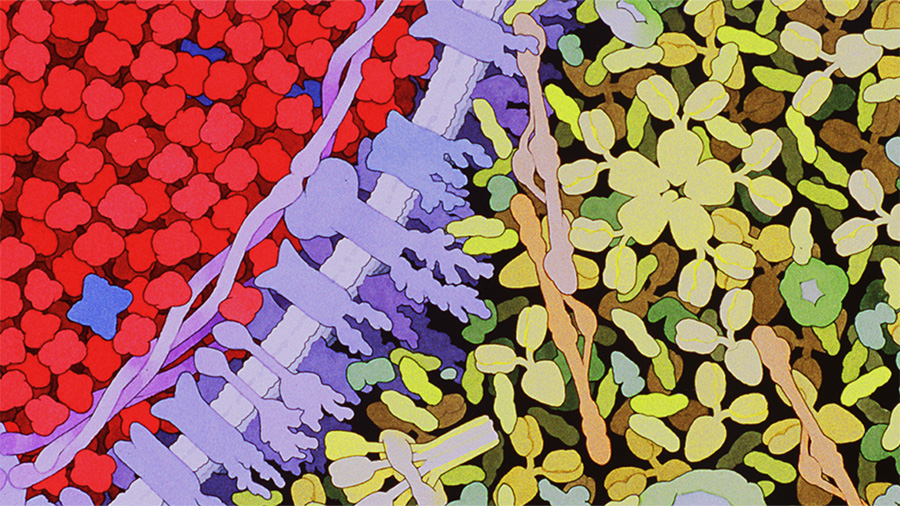Calendar of events, awards and opportunities
Every week, we update this list with new meetings, awards, scholarships and events to help you get your ducks in a row. If you’d like us to feature something that you’re offering to the bioscience community, email us with the subject line “For calendar.” ASBMB members’ offerings take priority, and we do not promote products/services. Learn how to advertise in ASBMB Today.
Jan. 31: Early bird registration deadline for postdoc meeting
The National Postdoctoral Association meeting will be held virtually April 15–16. You can take advantage of the early bird discount by registering by today. Regular registration will continue through April 11. For advisers, bulk registration is also available. (We strongly encourage institutions to take this route!) See what NPA has planned for what it bills as "the largest educational conference and networking event dedicated to the postdoctoral community."
Feb. 1: Anxiety webinar for trainees by NIH
The National Institutes of Health continues its mental health series for graduate students and postdocs this week with a webinar on anxiety and anxiety disorders. The event will be at 1 p.m. Eastern on Monday, but you'll need to register by noon that day. Here's what the announcement we received said: "The lecture will include details on physical symptoms of anxiety, as well as common contributors to anxiety including perfectionism, imposter fears, cognitive distortions, and negative self-concept. ...Importantly, lecturers will provide useful resources to gain further support and information. This webinar will be followed by small group discussions to discuss the topic in greater depth." Learn more about the series and register for this webinar.

Feb. 2: Constructing narratives for teaching science
Few faculty members receive formal training in telling the stories of their science. Telling stories is crucial for writing grants, writing papers and developing classroom lessons. Now more than ever, scientists need to be able to craft narratives for people who lack a scientific background. This event will feature a keynote address from Jay Hosler, a professor of biology at Juniata College (and cartoonist whose work is featured above). Learn more and register.

Feb. 12: Family and work interactions
Join this virtual conversation at 3 p.m. Eastern on Feb. 12 about family and work interactions. Nathan L. Vanderford, assistant professor at the University of Kentucky College of Medicine, will get us started, and we then will break into four groups to discuss parenting, when your spouse/partner is your colleague, long-distance relationships and adult caregiving. Each group will be a facilitated opportunity to share your own triumphs and challenges and learn from your colleagues’ experiences. You will select your preferred group during registration but may move to a different group during the event if desired. See the speakers and register.
Feb. 15: Deadline to apply for scicomm workshop
The Green Science Policy Institute is presenting a two-session workshop on March 10 and 17 "for scientists who want to more effectively use their research to benefit public health." It will include exercises, group discussions and expert talks. Here's what the website says: "The first two-and-a-half-hour session will cover scientific strategy such as selecting a research topic to support policy in the public interest. The second session will cover communications strategy including impactful writing, choosing an optimal release date, composing a press release in accessible language with a 'hook' to attract attention, and speaking with the press." We learned about this opportunity on Twitter. Apply by Feb. 15.
Feb. 18: Up to $35K for outreach from ASCB
The American Society for Cell Biology is offering its members up to $35,000 to "engage local communities with the process of science and increase public scientific literacy." The next deadline for grant applications is March 31, but, before that, applicants should attend the Feb. 18 webinar to get tips on writing a successful application. Learn more.
Feb. 19: Survey of biology faculty members
Amy Vance, a doctoral candidate at the University of North Texas in the Department of Counseling and Higher Education, is conducting her dissertation research study on the professional identity and use of evidence-based teaching methods among biology faculty. The purpose of the study is to examine the professional identity of four-year college faculty members (i.e., as a scientist or an educator) in the discipline of biology and to understand to what extent their identity relates to the use of evidence-based teaching practices. If you are a biology faculty member at a four-year institution, please consider assisting Vance in her study by completing this survey. For more information, contact her at amyvance@my.unt.edu. The deadline to complete the survey is Feb. 19.
Feb. 23–24: Workshop on the environment and microbiome
The National Institute of Environmental Health Sciences is holding a two-day virtual workshop titled "Impact of Environmental Exposures on the Microbiome and Human Health" on Feb. 23–24. It's part of the institute's microbiome outreach activities and will cover the following: health and toxicity; environmental exposures; adsorption, disruption, metabolism and excretion; and models and methods. See the agenda. Register.

Feb. 24–26: Proteinases and their inhibitors
Founded by Hans Fritz and Vito Turk, the meeting has been providing a scientifically stimulating and outstanding open atmosphere to researchers on proteolytic enzymes for almost four decades. The meeting covers diverse and vibrant fields of protease research, such as mechanistic studies on proteases in their molecular, cellular and organismic context. Sessions include proteolysis in cancer; proteolysis in neuro-signaling and neurodegeneration; proteolysis in blood coagulation; discovery of protease substrates; mechanisms and engineering of proteases, ligases, their substrates and inhibitors. This will be a forum primarily for young scientists (pre- or postdoctoral) to present their exciting and/or intriguing results for discussion with leading experts. Learn more.
March 1: CUR mentor award nominations due
The Council on Undergraduate Research is accepting nominations and self-nominations through March 1 for its biology division's mentor awards. We recommend checking the website to be sure you understand who is allowed to submit nominations, as there is some fine print. There are three categories for the awards: early career, midcareer and advanced career. The nomination package requires two letters from students, among other things. Learn more.
March 8–10: NASEM workshop
National Academies of Sciences, Engineering, and Medicine will host a workshop titled “Quantum Science Concepts in Enhancing Sensing and Imaging Technologies: Applications for Biology” virtually on March 8–10. The announcement we received said the event will cover "research and development needs to advance biological applications of quantum-enabled sensing and imaging technologies." Learn more about the project. Register for the event here.
March 16: Funding opportunity for rare disease research
We learned about a call for proposals from the Clayco Foundation to support investigators conducting research of retinal vasculopathy with cerebral leukoencephalopathy, or RVCL, an ultra-rare fatal vasculopathy that leads to brain lesions (strokes, visual impairment, dementia) and multiorgan vascular damage. It is caused by autosomal dominant mutations within the C-terminal region of the TREX1 gene. Underlying pathology has been speculated to be a consequence of alterations in DNA damage repair, dysregulation of innate immune pathways, acceleration of cellular senescence, or dysregulated handling of cellular debris. See the CFP.

May 4–5: A special symposium celebrating the 50th anniversary of the Protein Data Bank
This celebration of the 50th anniversary of the founding of the Protein Data Bank as the first open-access digital data resource in biology will include presentations from speakers from around the world who have made tremendous advances in structural biology and bioinformatics. Students and postdoctoral fellows are especially encouraged to attend and will be eligible for poster awards. Learn more.
May 31: Application deadline for IUBMB editorship
The International Union of Biochemistry and Molecular Biology is seeking a new editor for its journal Biotechnology and Applied Biochemistry. The editor has a three-year term. Applications are due May 31. See the job description and application instructions.

Call for virtual scientific event proposals
The ASBMB provides members with a virtual platform to share scientific research and accomplishments and to discuss emerging topics and technologies with the BMB community.
The ASBMB will manage the technical aspects, market the event to tens of thousands of contacts and present the digital event live to a remote audience. Additional tools such as polling, Q&A, breakout rooms and post event Twitter chats may be used to facilitate maximum engagement.
Seminars are typically one to two hours long. A workshop or conference might be longer and even span several days.
Prospective organizers may submit proposals at any time. Decisions are usually made within four to six weeks.
Enjoy reading ASBMB Today?
Become a member to receive the print edition four times a year and the digital edition monthly.
Learn moreFeatured jobs
from the ASBMB career center
Get the latest from ASBMB Today
Enter your email address, and we’ll send you a weekly email with recent articles, interviews and more.
Latest in Careers
Careers highlights or most popular articles

Upcoming opportunities
ASBMB's PROLAB award helps graduate students and postdoctoral fellows spend up to six months in U.S. or Canadian labs.

From humble beginnings to unlocking lysosomal secrets
Monther Abu–Remaileh will receive the ASBMB’s 2026 Walter A. Shaw Young Investigator Award in Lipid Research at the ASBMB Annual Meeting, March 7-10 in Washington, D.C.

Chemistry meets biology to thwart parasites
Margaret Phillips will receive the Alice and C. C. Wang Award in Molecular Parasitology at the ASBMB Annual Meeting, March 7-10 in Washington, D.C.

Decoding how bacteria flip host’s molecular switches
Kim Orth will receive the Earl and Thressa Stadtman Distinguished Scientists Award at the ASBMB Annual Meeting, March 7–10, just outside of Washington, D.C.

Defining JNKs: Targets for drug discovery
Roger Davis will receive the Bert and Natalie Vallee Award in Biomedical Science at the ASBMB Annual Meeting, March 7–10, just outside of Washington, D.C.

Upcoming opportunities
No matter where you are in your career and what future path you aspire to, everyone needs leadership skills. Join ASBMB for practical strategies for building and practicing leadership skills.
